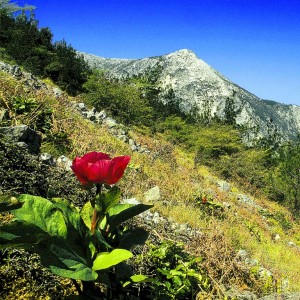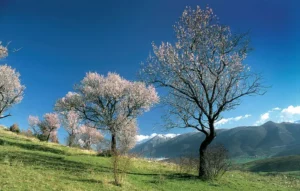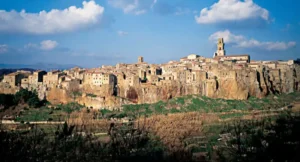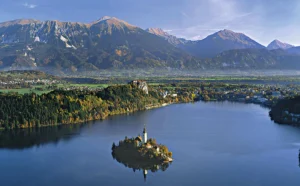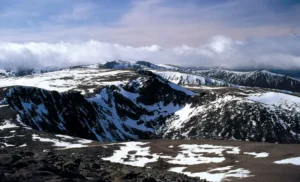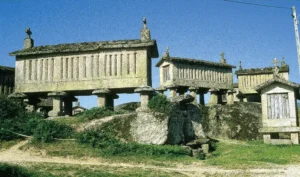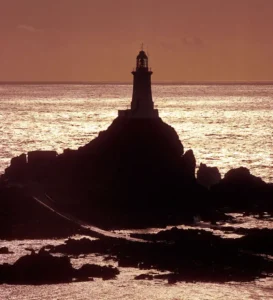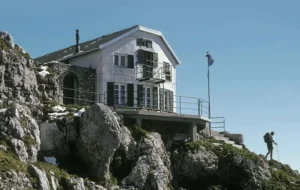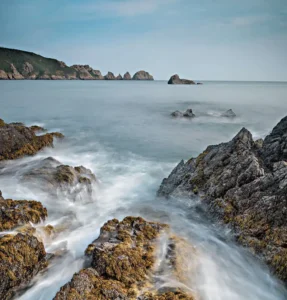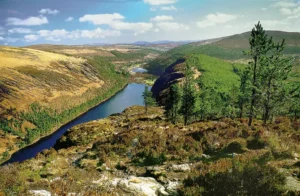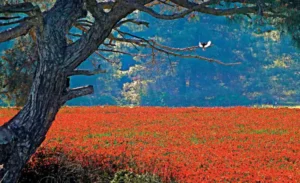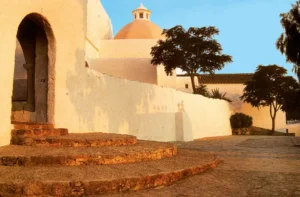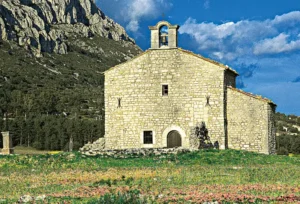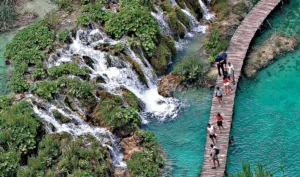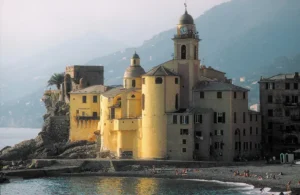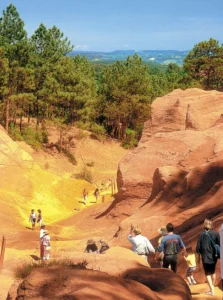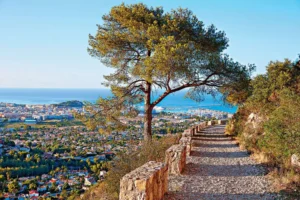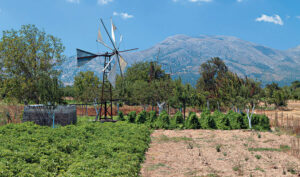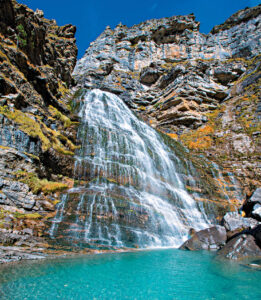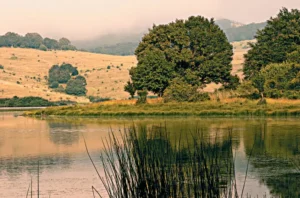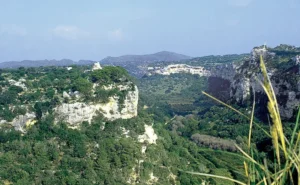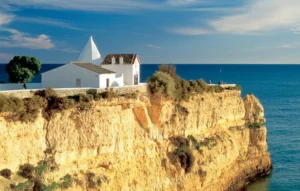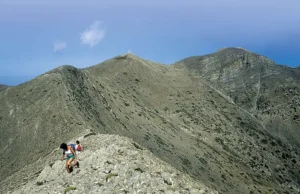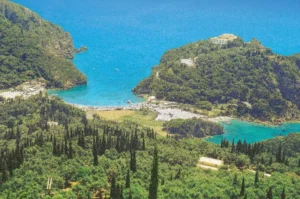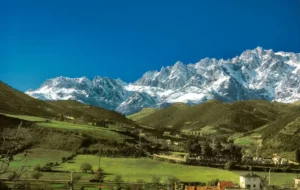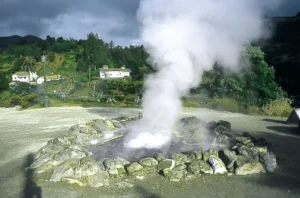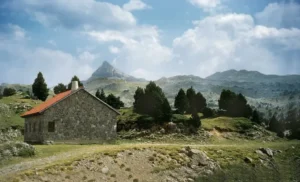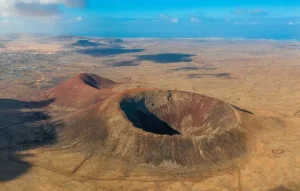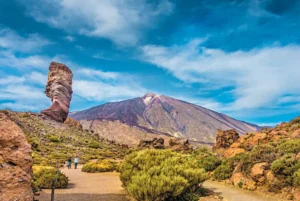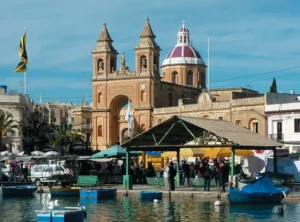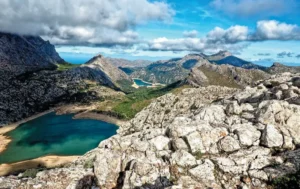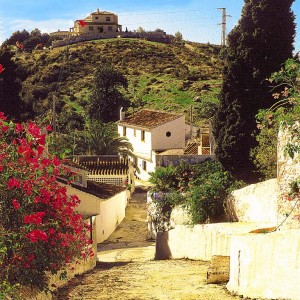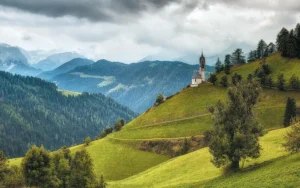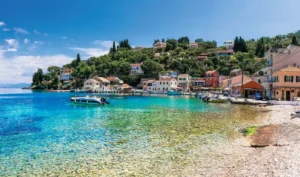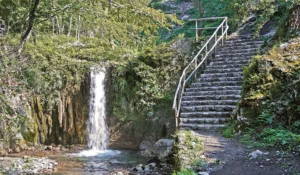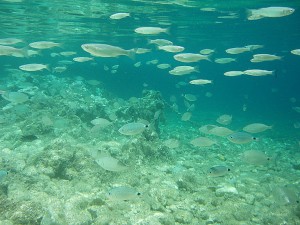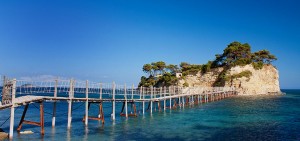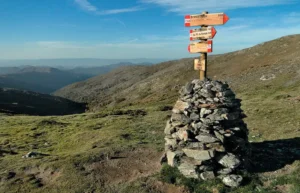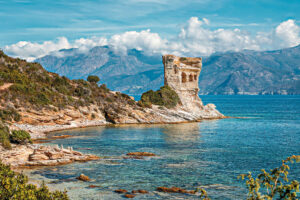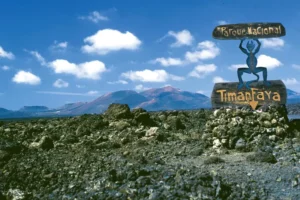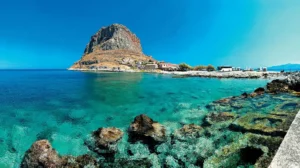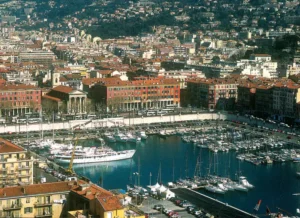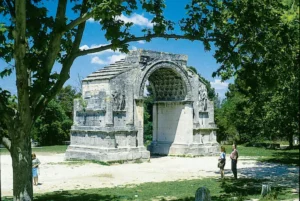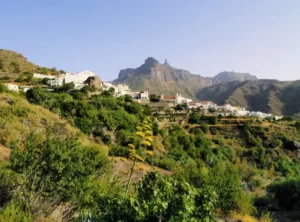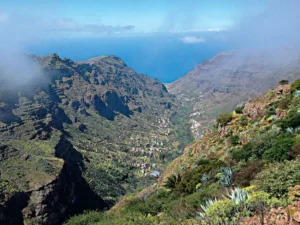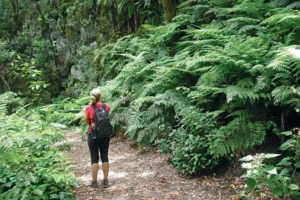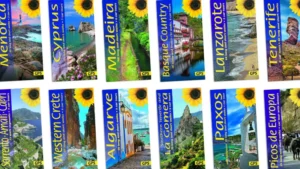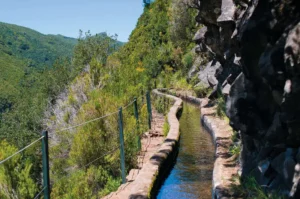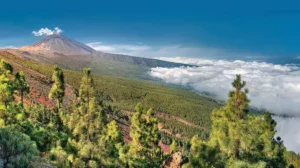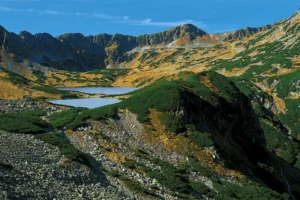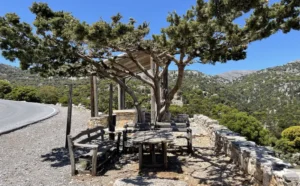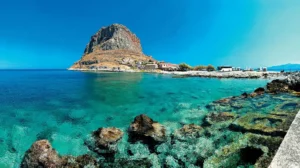The Canary Islands: a paradise for hikers
The Canary Islands are a volcanic archipelago located off the coast of North Africa. They offer a diverse landscape that caters to hikers of all levels. From rugged mountains and lush forests to volcanic craters and sandy beaches, there’s something for everyone.
In this article, we’ll explore the walking highlights of each island. We’ll also tell you the best time to visit, how to travel between islands, and where to go if you want to avoid the crowds. Our guidebook to walking in the Canary Islands, featuring seven walks on each island, is your ideal companion in this fantastic region.
The best time to for walking on the Canary Islands
The Canary Islands enjoy a pleasant climate year-round, making them a great destination for hiking any time of the year. However, the best time to visit for hiking depends on your preferences:
• Spring (March-May): This is a great time to visit for pleasant temperatures and fewer crowds.
• Summer (June-August): While the weather is hot and dry during summer, it’s still possible to hike in the cooler morning and evening hours.
• Autumn (September-November): Similar to spring, autumn offers comfortable temperatures and fewer tourists.
• Winter (December-February): The weather is mild, and many escape the poor weather in the northern climes to walk there in winter.
Tenerife
• Teide National Park: Hike to the summit of Mount Teide, Spain’s highest peak, or explore the park’s lunar-like landscapes.
• Anaga Rural Park: Discover lush laurel forests, hidden waterfalls, and dramatic coastal cliffs.
• Teno Peninsula: Embark on challenging but rewarding hikes in one of the richest botanical areas in the Canaries.
Gran Canaria
• Camino Real from San Bartolomé to Cruz Grande: There are many kings’ highways (caminos reales) in Gran Canaria. They are ancient stone-built thoroughfares which have been rebuilt and signposted as walkers’ trails.
• Roque Nublo: Hike to this iconic rock formation for panoramic views of the island.
• Lake Chira: Make a circuit around one of the island’s many impressive dams — Every barranco holds one!
Lanzarote
• Timanfaya National Park: Discover a volcanic landscape with surreal formations, including craters, lava flows, and geysers.
• Los Ajaches National Park: Hike between villages above a semi-desert landscape with cacti, volcanic cones, and stunning coastal scenery.
• La Graciosa: A day trip to this island, off the coast of Lanzarote, can finish with a swim in a lovely lagoon.
Fuerteventura
• Jandia Natural Park: Explore a vast desert landscape with dunes, volcanic formations, and pristine beaches.
• Betancuria: Hike to this historic town, nestled in the mountains, and enjoy panoramic views of the island.
• Los Lobos Island: Take a ferry to this uninhabited island and hike through its volcanic landscape, full of hornitos (spatter cones).
La Gomera
• Garajonay National Park: Discover a lush cloud forest with unique plant life, including the laurel tree.
• Hermigua Valley: Hike through a fertile valley with palm trees, banana plantations, and traditional villages.
• El Cedro: Walk to this tiny village in one of the greenest areas on the island. Take a break at the rustic restaurant before visiting a 150m-high waterfall.
El Hierro
• Arbol Garoé: A hike to El Hierro’s ‘Holy Tree’, an indigenous laurel, is a must!
• Camino de la Virgen, a pilgrimage route: Our guide takes in the highlights of the trail.
• El Sabinar: Visit this area, where remnants of Canary junipers, buffeted by the northeast trade winds, are so bent over that their crowns touch the soil — an extraordinary sight!
La Palma
• Caldera de Taburiente National Park: Explore this UNESCO World Heritage Site, a massive volcanic crater with lush laurel forests, waterfalls, and dramatic cliffs.
• Ruta de los Volcanes: Hike through a volcanic landscape created by the eruption of the Teneguía volcano in 1971, passing through lava flows and craters.
• Los Tilos de la Palma: Discover a lush cloud forest with unique plant life, including the laurel tree, and enjoy the peaceful atmosphere.
Traveling Between the Islands
The Canary Islands are well-connected by ferries and flights. Ferries are a convenient and affordable way to travel between islands, especially for those with luggage or vehicles. Flights are faster but can be more expensive, especially during peak season. All the connections are mapped out in our guide.
How to avoid the crowds
The most popular islands for tourists are Tenerife, Gran Canaria, and Lanzarote. These islands tend to be more crowded, especially during peak season. Fuerteventura, La Gomera, La Palma and tiny El Hierro are generally less visited, making them ideal for those seeking a more peaceful and secluded experience.
The Canary Islands offer a diverse and stunning landscape that is perfect for hiking. Whether you’re a seasoned hiker or a casual walker, there’s something for everyone. By using our guidebook to walking in the Canary Islands you can dip your boots into each of the islands. Find your favourite before you commit yourself to a dedicated guide to one island.
More Articles
Walking on Samos: a Greek island odyssey Samos, a verdant gem nestled in the [...]
Walking in Umbria and the Marche: through Italy’s green heart Umbria and the Marche, [...]
Walking in Tuscany: rolling hills and Medieval towns Tuscany, with its rolling hills, vineyards, [...]
Walking in Slovenia: a land of diverse beauty Slovenia, a small country nestled in [...]
The Scottish Highlands: a journey through wild landscapes The Scottish Highlands, a vast and [...]
Adventure in Northern Portugal Northern Portugal is a region of rugged beauty, rich history [...]
Walking on the Channel Island of Jersey The Channel Island of Jersey, located just [...]
An adventure in the Bernese Oberland & Valais The Bernese Oberland and Valais regions [...]
Adventures at the Italian Lakes The Italian Lakes, a shimmering necklace of emerald and [...]
Walking on the island of Guernsey The island of Guernsey, located in the English [...]
Walking on the Emerald Isle Ireland, with its rolling hills, rugged coastlines and charming [...]
Discover the hidden gems of Lesvos Lesvos, a picturesque Greek island in the Aegean [...]
Island walking and cycling on Ibiza and Formentera Ibiza and Formentera, two stunning islands [...]
Discover Eastern Provence Eastern Provence, a sun-kissed region in southeastern France, offers a diverse [...]
Discover Croatia’s hidden gems on foot Croatia, a stunning country with a diverse landscape, [...]
Discover the coastal charms of Cinque Terre and the Riviera di Levante The stunning [...]
Wanderlust in Western Provence Western Provence, a region of sun-drenched landscapes, historic villages, and [...]
Walking on the Costa Blanca – a Mediterranean delight The Costa Blanca, Spain’s sun-kissed [...]
Walking in Eastern Crete – a journey through time Eastern Crete, a land of [...]
The Pyrenees – a mountainous adventure The Pyrenees, a majestic mountain range that forms [...]
Discovering the walking trails of Sicily Sicily, a sun-kissed island off the southern tip [...]
Discovering the landscape of Menorca on foot Menorca, a tranquil Balearic island off the [...]
The Algarve – a coastal paradise for walkers The Algarve, Portugal’s sun-drenched southern coast, [...]
Discover the Costa Brava The Costa Brava, a stunning stretch of coastline in northeastern [...]
Western Crete – an unspoiled haven for walkers Western Crete, a rugged and unspoiled [...]
The diverse landscapes of Corfu Corfu, a jewel in the Ionian Sea, is not [...]
Conquer the Picos de Europa! The Picos de Europa, a dramatic mountain range in [...]
Discover the best walking trails in the Azores The Azores, a stunning archipelago in [...]
Discover the magic of the Basque Country The Basque Country, a captivating region nestled [...]
Fuerteventura: a walker’s paradise Fuerteventura, the second-largest of the Canary Islands, is a hiker’s [...]
Walking on Tenerife: a paradise for hikers Tenerife, the largest of the Canary Islands, [...]
Conquering Tenerife’s Teide: a guide to summiting Spain’s highest peak Tenerife, the largest of [...]
The islands of Malta and Gozo Malta and Gozo, two small islands in the [...]
A hidden gem in the Balearics The Balearic island of Mallorca, often associated with [...]
Walking through Andalucía Andalucía, with its rich history, culture, and diverse landscapes, is a [...]
Walking in the Dolomites The Dolomites, a UNESCO World Heritage Site, are a mountain [...]
Walking on Paxos: a guide to the Green Island Paxos, a small island in [...]
Hiking the mountains and coastline of Southern Cyprus Southern Cyprus, with its diverse landscapes, [...]
An introduction to walking in Sorrento, Amalfi, and Capri The Amalfi coast, a UNESCO [...]
The underwater beauty of Zákynthos In our guidebook Zákynthos, A Complete Guide with Walks, [...]
Walking on Zákynthos in the summer Sometimes the summer heat on Zákynthos makes walking [...]
Sardinia: a hiker’s paradise Sardinia, a Mediterranean island known for its stunning beaches, crystal-clear [...]
Corsica: a walker’s paradise Corsica, a Mediterranean island known for its rugged beauty and [...]
Exploring Lanzarote’s volcanic landscape: the Timanfaya guided walk Lanzarote, one of the Canary Islands, [...]
A walking odyssey in the Greece The southern Peloponnese, in Greece, is a hidden [...]
Nice: a perfect destination for winter walking Nice, a vibrant city on the French [...]
Sagardotegiak – Basque cider houses The beautiful Basque coastal city of San Sebastián (or [...]
Discovering the flysch rock formations When walking in the Basque Country, don’t miss the [...]
Glanum – a Roman town in Provence If you are walking in Provence you [...]
Gran Canaria: a continent in miniature Gran Canaria, the third-largest of the Canary Islands, [...]
La Gomera: a walking wonderland La Gomera, one of the smaller Canary Islands, is [...]
La Palma and El Hierro: hiking havens in the Canary Islands La Palma and [...]
Lanzarote: a volcanic paradise for walkers Lanzarote, the easternmost of the Canary Islands, is [...]
Over 40 years of experience in each guide Sunflower has been producing guides for [...]
Madeira: a stunning destination for walkers Madeira lies in the Atlantic Ocean off the [...]
The Canary Islands: a paradise for hikers The Canary Islands are a volcanic archipelago [...]
Navigating Tenerife: a guide to the Titsa bus service Tenerife, the largest of the [...]
A culinary and walking adventure in Provence Provence, a region in southern France renowned [...]
A walking adventure in the Tatra Mountains The Tatra Mountains, straddling the border between [...]
Eastern Crete in October: a walker’s paradise Eastern Crete, with its rugged mountains, pristine [...]
A Walking Odyssey in the Southern Peloponnese The southern Peloponnese, Greece, is a hidden [...]

